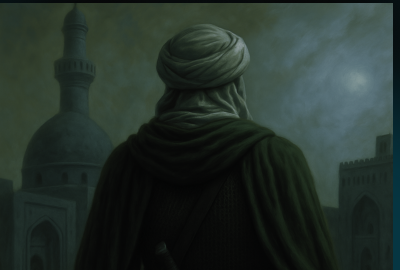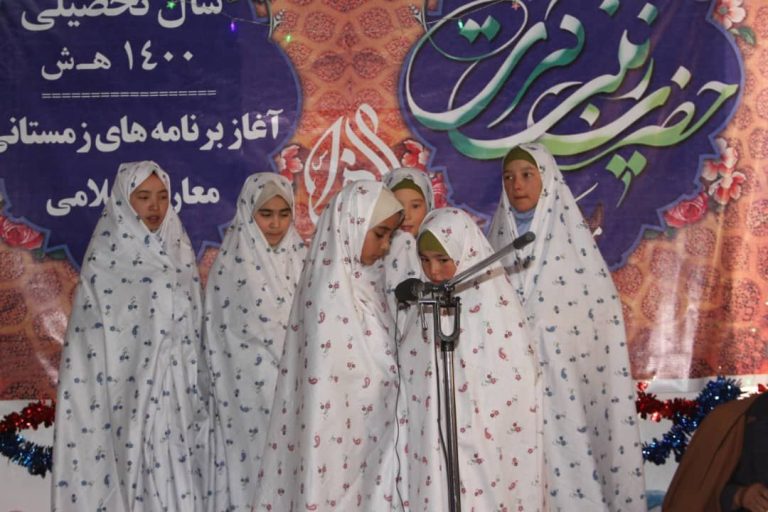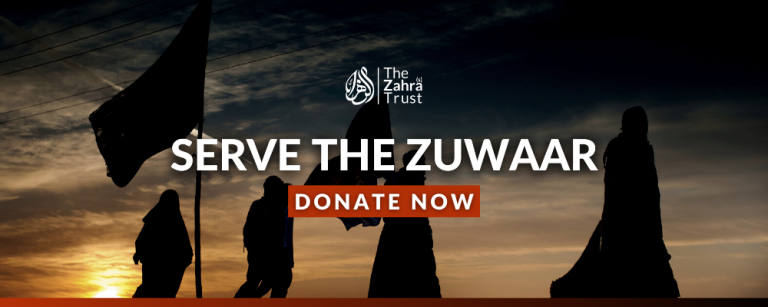Tragic Yet Timeless: Who Was Muslim ibn Aqeel (as) and Why His Story Still Matters
Introduction: The First Flame Before Karbala
Before the tragedy of Karbala, one man emerged as a symbol of loyalty: Muslim ibn Aqeel (as). Often overlooked, he was the first to lay down his life for Imam Hussain (as), and in doing so, he ignited the spirit of resistance that would define the legacy of Ashura.
His story is a reminder that the path of truth often begins in solitude – and that those who walk it first bear the heaviest burden.
Who Was Muslim ibn Aqeel (as)?
Born around 12 AH, Muslim ibn Aqeel (as) hailed from the esteemed Bani Hashim clan. As the son of Aqeel ibn Abu Talib, he was the nephew of Imam Ali (as) and a close cousin of Imam Hussain (as).
Growing up in the household of the Ahlulbayt (as), Muslim was known for his integrity, intelligence, and unwavering piety.
A Noble Lineage and Deep Connections
Muslim bin Aqeel’s (as) familial ties placed him in direct proximity to the Prophet Muhammad (saww). His heritage was not just a matter of birth, but one of immense responsibility. The presence of his daughter during his final days – and Imam Hussain’s (as) deep care for her after his martyrdom – highlights the human side of these historic sacrifices.
A Trusted Companion to Imam Hussain (as)
Muslim ibn Aqeel (as) was far more than a cousin to Imam Hussain (as); he was a trusted envoy and loyal supporter. When letters poured in from the people of Kufa urging Imam Hussain (as) to lead them, it was Muslim bin Aqeel (as) who was chosen to go on behalf of the Imam.
This choice reflected not just trust, but complete confidence in Muslim bin Aqeel’s (as) judgement, spiritual clarity, and moral integrity.
The Mission to Kufa
Upon reaching Kufa, Muslim was initially embraced by the locals. Thousands pledged allegiance to Imam Hussain (as) through him, promising to support a righteous movement against tyranny.
For a moment, hope flickered brightly.
A Sudden Shift in Power
However, things quickly changed with the appointment of Ubaydullah ibn Ziyad (la) as governor. He launched a strategic campaign of intimidation, causing widespread fear.
Muslim bin Aqeel (as) watched as his supporters abandoned him one by one.
Deserted But Not Defeated
Even as betrayal unfolded, Muslim ibn Aqeel (as) did not waver. Alone and on the run, he sought shelter in the home of a woman named Taw’a, who displayed remarkable courage by giving him refuge, if only briefly.
Despite overwhelming odds, he chose to stand firm.
The Martyrdom of Muslim ibn Aqeel (as)
On the 9th of Dhul Hijjah, 60 AH, also known as the Day of Arafah, Muslim was captured and brought before Ubaydullah. Before his execution, he requested that a message be delivered to Imam Hussain (as), urging him not to enter Kufa:
“Return from this journey… The people of Kufa lied to you as well as to me. Nothing can be achieved by means of falsehood.” (Source)
His request was denied. He was thrown from the palace rooftop, and his head was sent to Yazid in Damascus – a chilling prelude to the events of Ashura.
A Father’s Legacy and A Guardian’s Compassion
Imam Hussain (as) was deeply moved by the news. In one of the most touching moments recorded in Islamic history, he took Muslim bin Aqeel’s (as) orphaned daughter into his lap, gently caressing her head – an act that signified both comfort and a pledge of guardianship.
This simple gesture conveyed profound love and continuity in the face of immense loss.
His Resting Place in Kufa
Muslim ibn Aqeel (as) is buried in Kufa, Iraq, where a shrine stands today in his honor. It draws thousands of visitors each year, especially during Muharram, who come to pay tribute to the first martyr in the Karbala movement.
Why His Story Still Resonates
Muslim ibn Aqeel’s (as) life is not just a historical narrative – it’s a moral compass. His commitment to justice, even in the face of death, makes him a timeless role model.
His stand reminds us that integrity doesn’t require a crowd, just conviction and courage.
Relevance in Our Time
In today’s complex world, Muslim ibn Aqeel (as) continues to inspire those who:
- Stand against oppression
- Speak out for justice
- Hold fast to their principles despite fear or pressure
His story is a call to act – not just remember.
Ways to Honor His Legacy
Give sadaqa in his name.
Teach others about his contributions to Islamic history.
Reflect on his sacrifice during Dhul Hijjah and Muharram.
Visit his shrine or contribute to its maintenance.
Frequently Asked Questions
He was the cousin and ambassador of Imam Hussain (as), sent to assess support in Kufa prior to the tragedy of Karbala.
He was the first martyr in the Karbala movement, whose death exposed the betrayal of Kufa and foreshadowed the events of Ashura.
He is buried in Kufa, Iraq, at a shrine that is visited by thousands each year.
He warned Imam Hussain (as) not to come to Kufa, stating that the people had betrayed both of them.
Imam Hussain (as) comforted Muslim’s daughter and took her under his care, showcasing his deep love and respect for Muslim.
Through acts of charity, education, reflection, and standing firm in times of moral challenge, Muslim ibn Aqeel’s (as) legacy can live on.
Conclusion: A Torchbearer of Truth
Muslim ibn Aqeel (as) stood alone in a city that had promised support and delivered betrayal. Yet his name remains etched in the hearts of believers, reminding us that every movement for justice begins with someone brave enough to walk alone.
His story isn’t just about martyrdom – it’s about being a torchbearer for truth in times when it’s most needed.
You can read more about Muslim ibn Aqeel’s (as) role in the events of Karbala here.
And you can honour his legacy by giving sadaqa in his name to help the most vulnerable.










